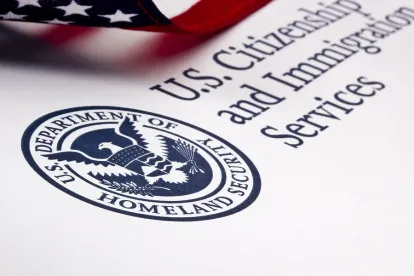The USCIS has started conducting in-person interviews for all employment-based adjustment of status (AOS) applicants whose applications were filed on or after March 6, 2017. The AOS will not be approved until after a “successful” interview.
Although there is no formal guidance as yet, there have been some reports on what to expect.
The Process
-
After review, the USCIS Service Centers will send cases to the National Benefits Center (NBC).
-
The NBC will get the case file into an “interview ready state” and generate the interview notice based upon availability at the appropriate local office.
-
The expectation is that interview notices will be sent at least 30 days in advance of the appointment.
-
The case file will be transferred from the NBC to the appropriate local office for the interview.
-
The NBC will try to schedule interviews for family groups together.
-
All dependents will be interviewed, although there may be a waiver for children under 14 years of age.
The Questions
The USCIS announced that “[c]onducting in-person interviews will provide USCIS officers with the opportunity to verify the information provided in an individual’s application, to discover new information that may be relevant to the adjustment process, and to determine the credibility of the individual seeking permanent residence in the United States.” Applicants can expect to have their credibility tested by the Field Officer regarding any information in their filings including:
-
Work Experience
-
Current Job
-
Educational Background
-
Potential grounds of inadmissibility
-
Maintenance of status
-
Job portability
-
Bona fides of the relationships between any dependents and the principal beneficiary
The subject of the interview is the AOS. In most cases the employer’s underlying I-140 (Immigrant Worker Petition) will have been approved prior to the interview and is not being adjudicated through the interview. However, where work experience or other employment-related facts on which the I-140 was based are called into question, local offices may return the I-140 to the appropriate Service Center for review.
Each applicant, including dependents, will receive their own interview notices. The notices will contain lists of documents to bring to the interview. These notices at least initially will be boilerplate but applicants should expect to be asked to bring the originals of all relevant civil documents, letters and degrees submitted as copies with the filing. Dependents should plan to bring evidence of the bona fides of their relationship with the primary beneficiary. The above-listed issues will impel the production of different types of documentation depending on the circumstances of individual cases.
Because of the additional interview workload, delays are expected especially in San Jose, San Francisco, Newark, New York, Houston, Seattle, Chicago, Dallas, Atlanta and Los Angeles. Since the required medical examinations are only valid for one year, applicants may want to consult with their attorneys as to when and where to submit their medical examinations. Depending upon the rules at the time of filing, submission of the medical exams in response to a later agency request or at the interview may be both possible and preferable.





 />i
/>i

